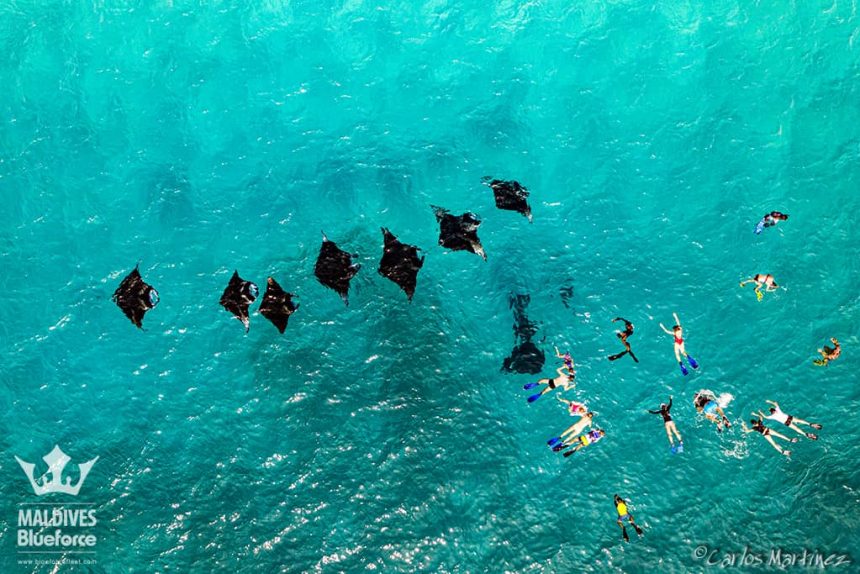The Maldives Association of Travel Agents and Tour Operators (MATATO) has strongly condemned the Dhonfanu Council’s unilateral decision to close the island’s house reef to diving and snorkeling, warning that the move threatens jobs, livelihoods, and the Maldives’ global reputation as a premier tourist destination.
In a statement issued on Thursday, MATATO expressed “deep concern” over the closure, stressing that natural treasures such as Hanifaru Bay and its surrounding reefs are not local assets to be monopolized, but national treasures belonging to every Maldivian.
Tourism Industry at Risk
The closure covers a 700-meter radius around Dhonfanu’s reef, extending into lagoons widely used by guesthouse operators, liveaboards, and safari vessels. This includes a critical anchorage and transit point relied upon by countless safari boats and resort operators.
MATATO warned that blocking such areas strikes at the very heart of the tourism value chain. “Any restriction or disruption to access not only threatens the livelihood of countless Maldivians but also undermines the country’s reputation as a world-class destination” the statement read.
The association pointed out that the Maldives’ tourism economy depends heavily on biodiversity hotspots like Hanifaru Bay — a UNESCO Biosphere Reserve internationally celebrated for manta rays and whale sharks. Shutting down these areas, it argued, is not only reckless but also self-destructive.
Council’s Power Play Condemned
This latest controversy erupted after the Dhonfanu Council, citing protests over a canceled land reclamation project, announced it would block reef access “for safety reasons.” The move followed President Dr. Mohamed Muizzu’s decision earlier this week to scrap the reclamation initiative after residents voiced opposition.
While the President’s decision was praised nationally and internationally as proof of people-centered governance and environmental responsibility, the Dhonfanu Council’s subsequent actions have been criticized as short-sighted, politically motivated, and harmful to tourism.
MATATO Calls for National Leadership
MATATO urged the government and relevant authorities to immediately intervene, safeguard uninterrupted access for visitors, and protect fragile ecosystems without sacrificing livelihoods.
“The implications extend far beyond a single island community,” MATATO warned. “Thousands of jobs in guesthouses, safari operators, and resorts rely on the sustainability and accessibility of these marine areas. Such closures and reclamation activities risk destroying biodiversity that cannot be replaced — and once lost, it will be lost forever.”
Protecting Hanifaru for All Maldivians
The association reiterated that areas like Hanifaru Bay must be protected not only for Dhonfanu residents, but for the benefit of all Maldivians and generations to come. As one of the most iconic dive sites in the world, MATATO emphasized, Hanifaru Bay is a symbol of the Maldives’ global standing as a sustainable destination.
“Protecting these ecosystems is essential to maintaining our position as a leading global destination” MATATO declared. “We call on authorities to prioritize long-term national interest over short-term demands”.




